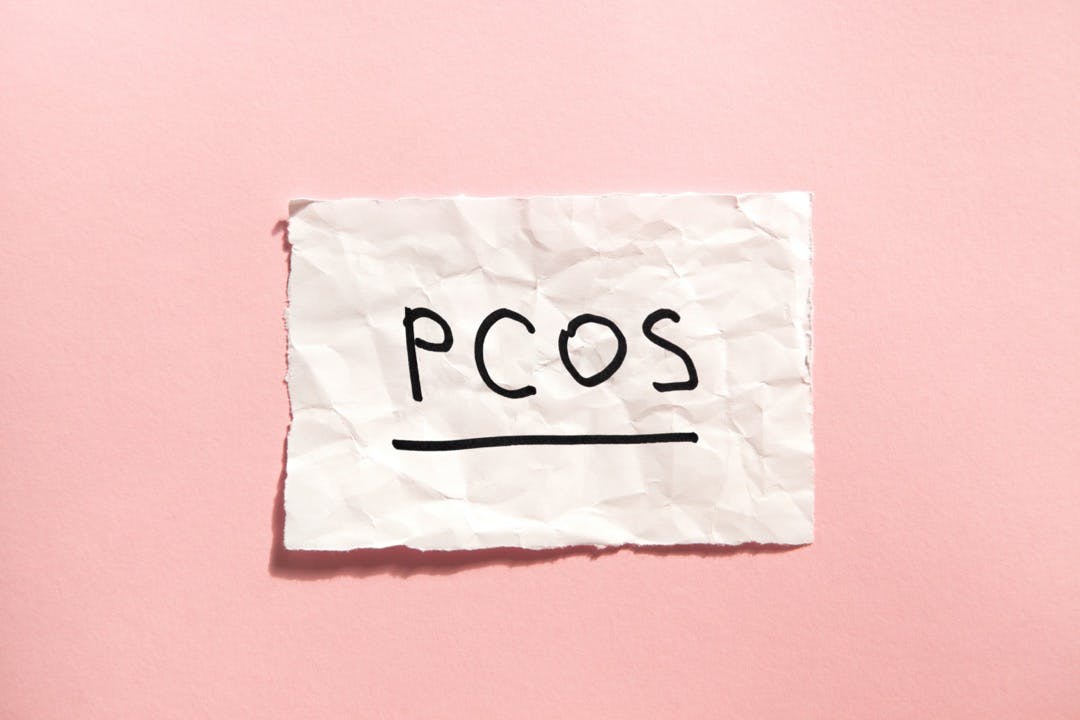
PCOS , short for polycystic ovarian syndrome, affects between 5-10% of women of reproductive age. This is often characterised by irregularities in menstruation and hyperandrogenism. Hyperandrogenism is excessive male hormones which explains the excessive hair growth in places like your face, chest, back, arms etc according to the Rotterdam Consensus Conference, PCOS may be diagnosed where any two of the following conditions are present:· Menstrual dysfunction: infrequent menstrual periods where no egg is released;· Hyperandrogenism (e.g. increased body hair, acne, high levels of testosterone on testing);· Polycystic ovaries on ultrasound. Other characteristic features of PCOS include infertility, obesity and insulin resistance. PCOS is associated with an increased risk of developing endometrial or ovarian cancer, diabetes, high blood pressure, and cardiovascular disease.PCOS is a condition that can occur at any age, and is found in childhood, during puberty, in adolescence, adulthood and in the elderly.CausesThe cause of PCOS is still uncertain but it is believed to have a genetic link. There are two risk factors that are most commonly associated with PCOS:
- Androgens: Women with PCOS have more androgens than normal. Higher than normal androgen levels in women can prevent the ovaries from releasing an egg (ovulation) during each menstrual cycle, and can cause extra hair growth and acne, two signs of PCOS.
- Insulin resistance: Insulin is a hormone that controls how the food you eat is changed into energy. Insulin resistance is when the body’s cells do not respond normally to insulin. As a result, your insulin blood levels become higher than normal. Many women with PCOS have insulin resistance, especially those who have overweight or obesity, have unhealthy eating habits, do not get enough physical activity, and have a family history of diabetes.
The BAD news…PCOS is a lifelong condition that cannot be cured. The GOOD news…PCOS can be managed through a combination of treatments for irregular menstruation, infertility and hirsutism, and insulin resistance.TreatmentPCOS can be greatly improved. By losing excess weight. Weight loss of just 5% can lead to a significant improvement in PCOS. Irregular or absent periods. contraceptive pill may be recommended to induce regular periods, or periods may be induced using an intermittent course of progestogen tablets (which are usually given every 3 to 4 months but can be given monthly). This will also reduce the long-term risk of developing cancer of the womb lining (endometrial cancer) associated with not having regular periods. Other hormonal methods of contraception, such as an intrauterine system (IUS), will also reduce this risk by keeping the womb lining thin, but they may not cause periods. Infertility, A medication called clomifene is usually the first treatment recommended for women with PCOS who are trying to get pregnant. Clomifene encourages the monthly release of an egg from the ovaries (ovulation). If clomifene is unsuccessful in encouraging ovulation, metformin may be recommended. Metformin is often used to treat type 2 diabetes, but it can also lower insulin and blood sugar levels in women with PCOS. As well as stimulating ovulation, encouraging regular monthly periods and lowering the risk of miscarriage, metformin can also have other long-term health benefits, such as lowering high cholesterol levels and reducing the risk of heart disease. Metformin is not licensed for treating PCOS in the UK, but because many women with PCOS have insulin resistance, it can be used “off-label” in certain circumstances to encourage fertility and control the symptoms of PCOS. Can I still get pregnant even if I have PCOS? Yes! Having PCOS does not necessarily mean you cannot get pregnant. PCOS is a common but TREATABLE cause of infertility, so don’t worry! A few lifestyle changes can make a big difference. Why not try the below?
- Daily 30-minute exercise
- Not smoking
- Moderating alcohol consumption
- Avoid crash diets
- Eating foods with more fibre and low glycaemic index
References:
© 2025 Syrona Health. All rights reserved.